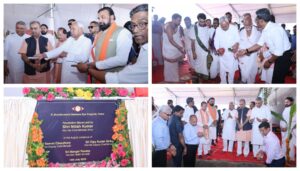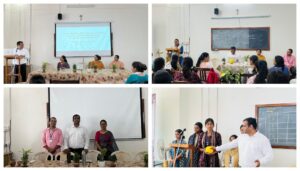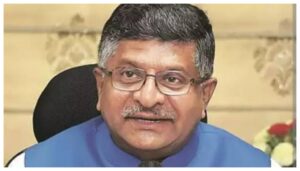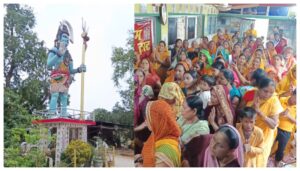
Patna: On Day 15 of the ongoing Mahila Samvad programme, women across Bihar continued to voice everyday demands, from roads and water supply to healthcare and income opportunities, using the platform to speak directly about what matters most in their daily lives.
In Jamui, participants from Amba village in Jhajha block demanded subsidised sanitary napkins through Anganwadi centres. “Periods are not a luxury. We want basic hygiene to be affordable and available,” said Sunita Devi from Ward 12.
Alka Devi, part of a self-help group (SHG) in Pursanda village, Jamui, called for digital libraries in every panchayat. “If our children are to compete with city kids, they need computers and career guidance close to home,” she said.
In Kishanganj’s Satkaua village, Khateeja Khatoon shared how a small shop under the Satat Jeevikoparjan Yojana changed her life. “Being disabled and alone, I had no support. This scheme helped me stand on my own feet,” she said during a session in Dighalbank block.

In Sitamarhi’s Bahera village, Krishna Devi requested a permanent community centre for meetings and training. “We meet under trees. A proper space will help more women join us,” she told the gathering.
Throughout the day, sessions took place in Supaul, Rohtas, Vaishali, Saharsa, Madhepura, Lakhisarai, Patna, Purnia, Aurangabad and Khagaria. Women demanded functioning health centres, ambulance services, public toilets, better drainage systems, local vocational centres and reliable electricity in rural areas.
Loan access and lower interest rates for SHGs were top concerns in Rohtas and Khagaria. From Nawada to Buxar, many women pressed for cold storage facilities, street lighting and cooperative milk societies to help farmers earn better returns. In Munger and Siwan, there were calls for anti-drug awareness campaigns and more school teachers.
All suggestions, ranging from individual needs to community-level changes, are being documented through a mobile app and routed to the appropriate departments for review. Officials said the process aims to inform future schemes and improve service delivery on the ground.






